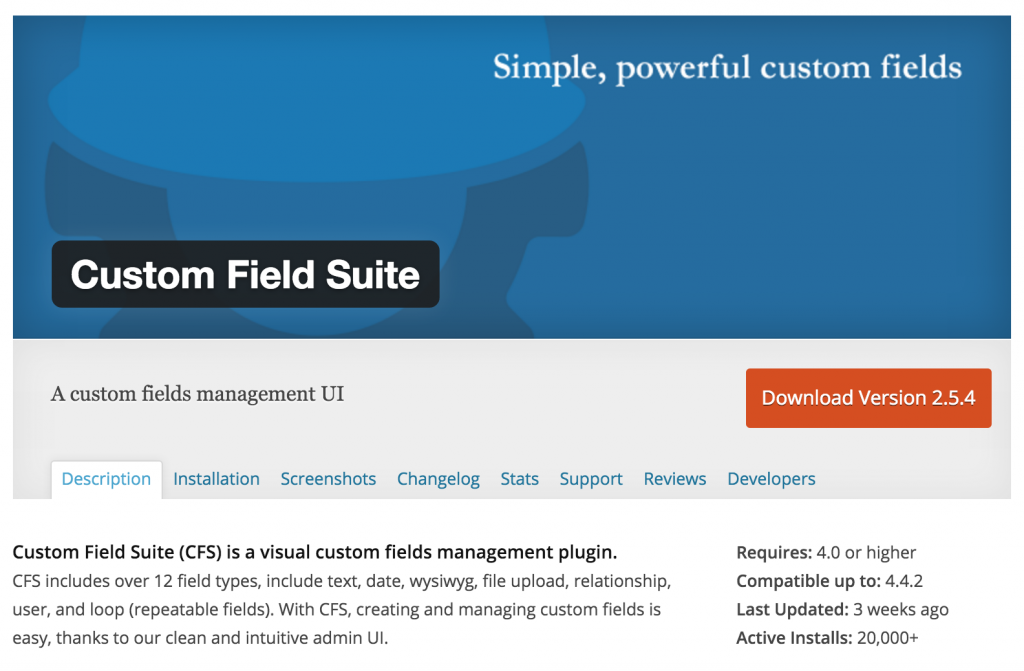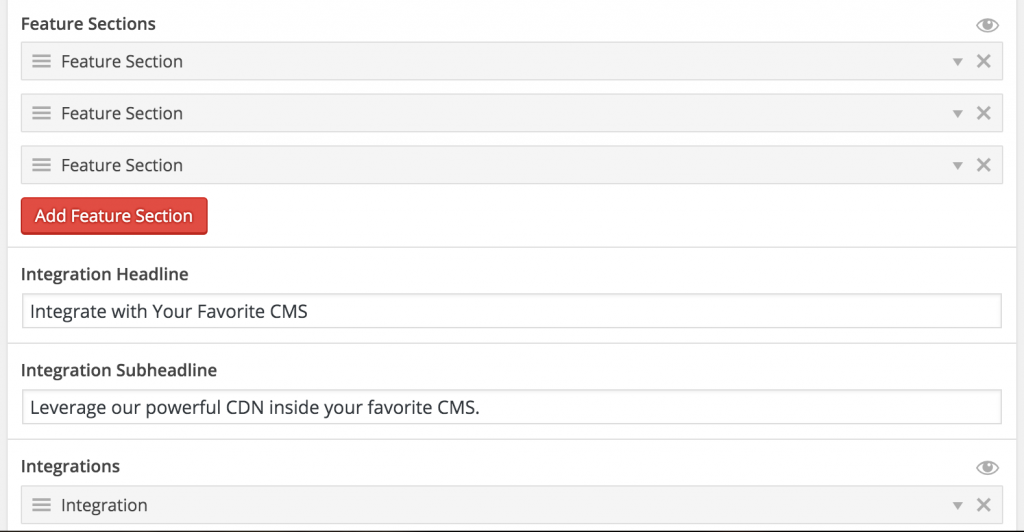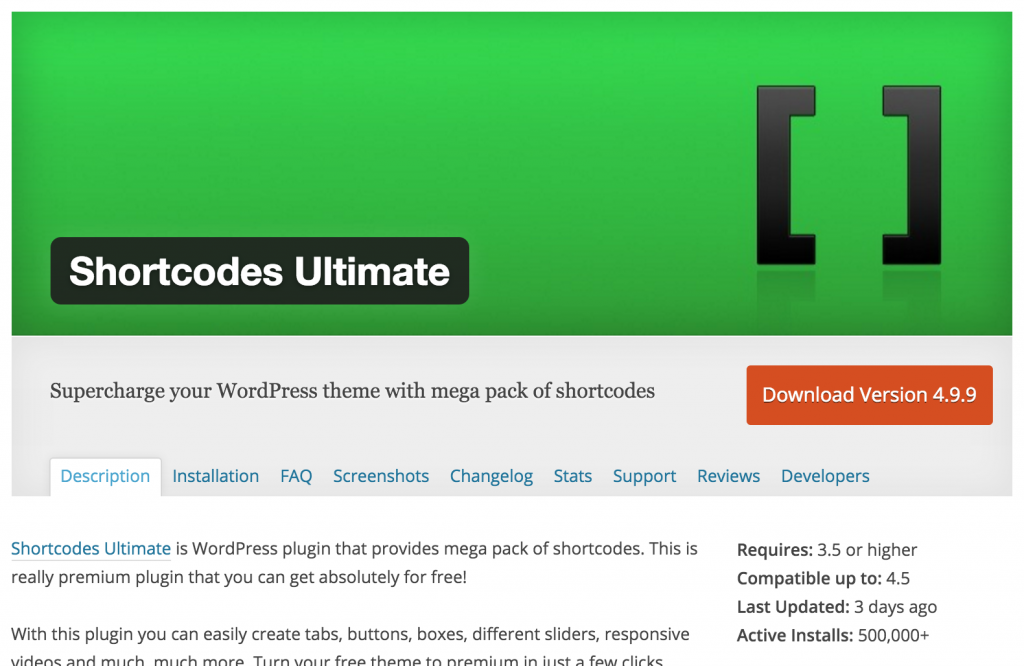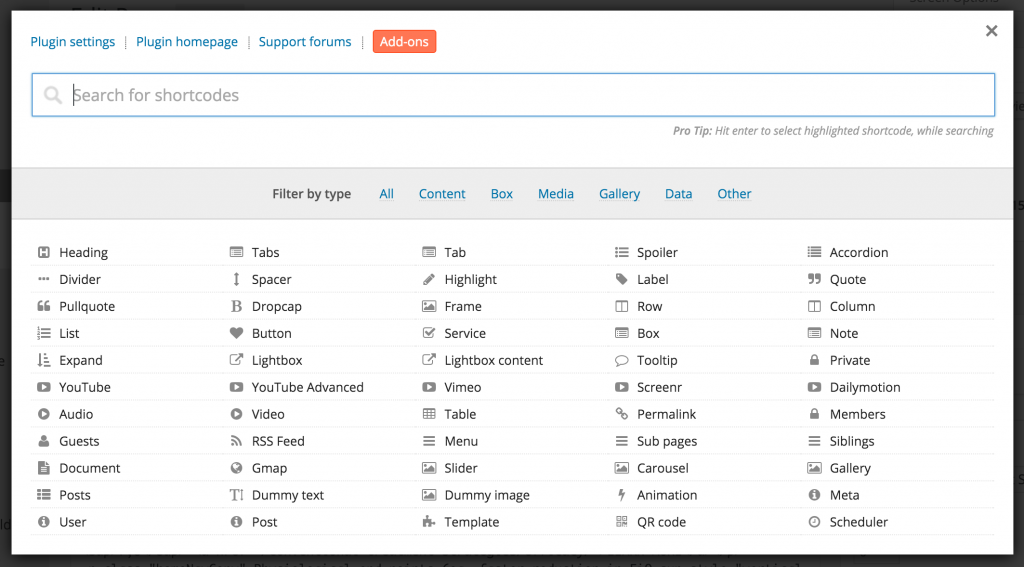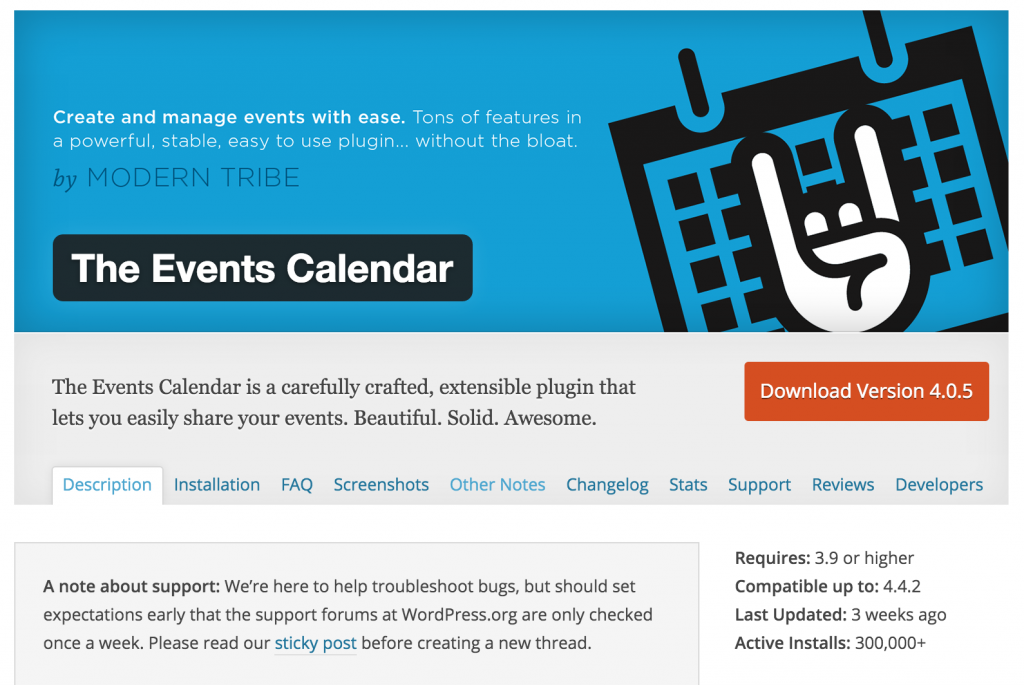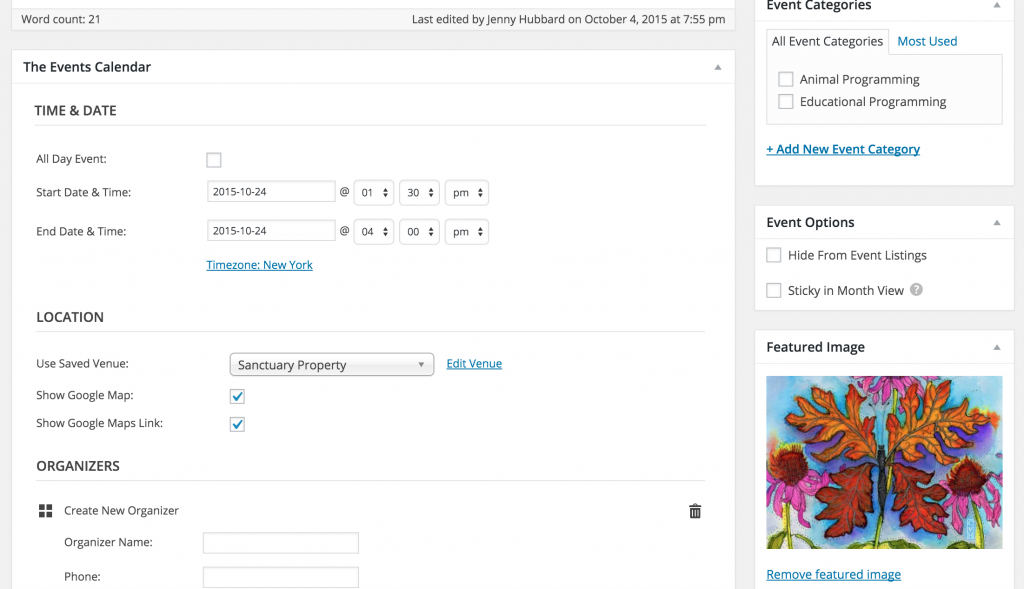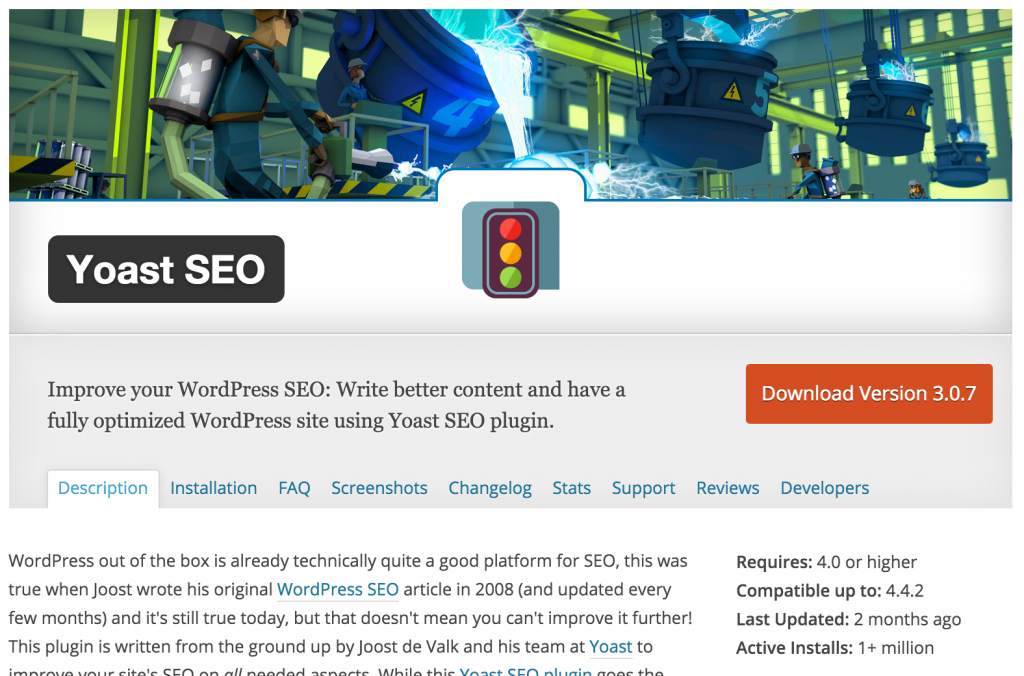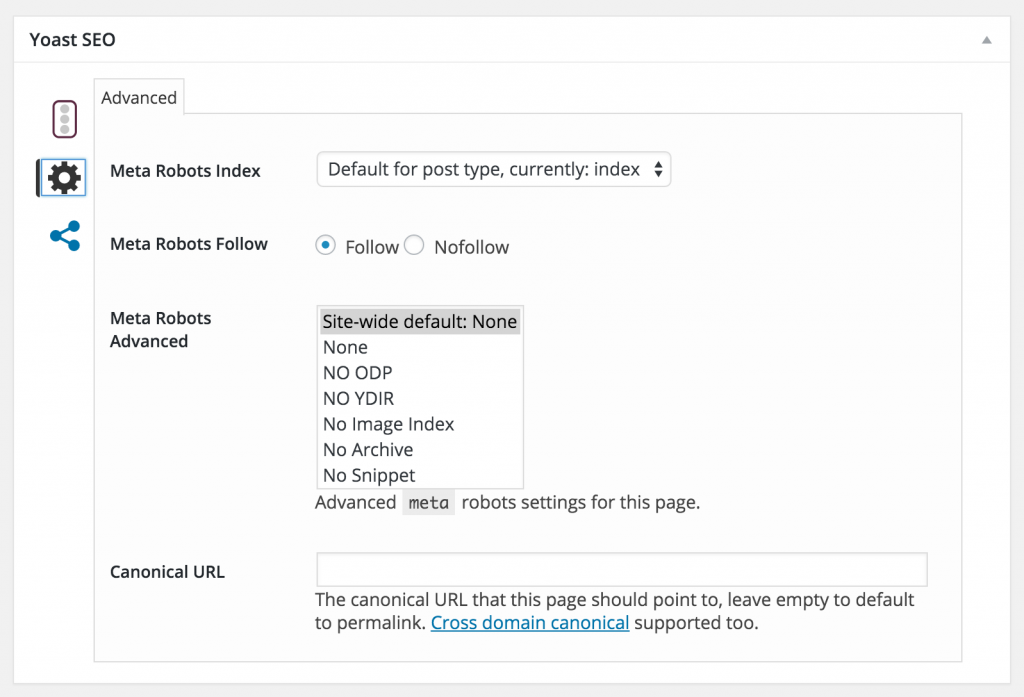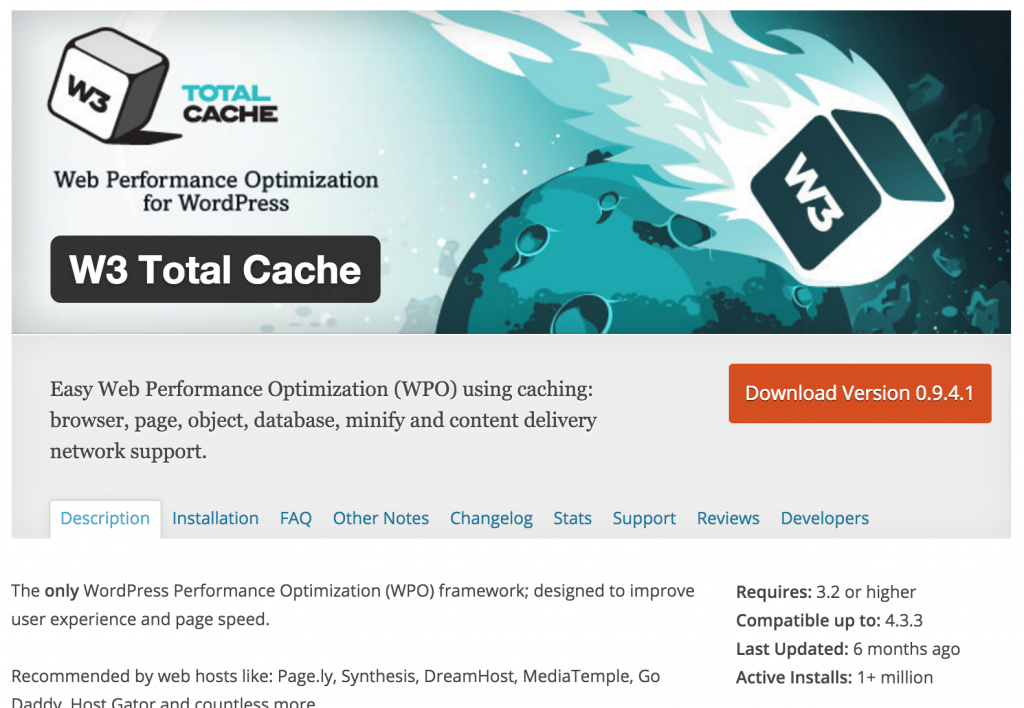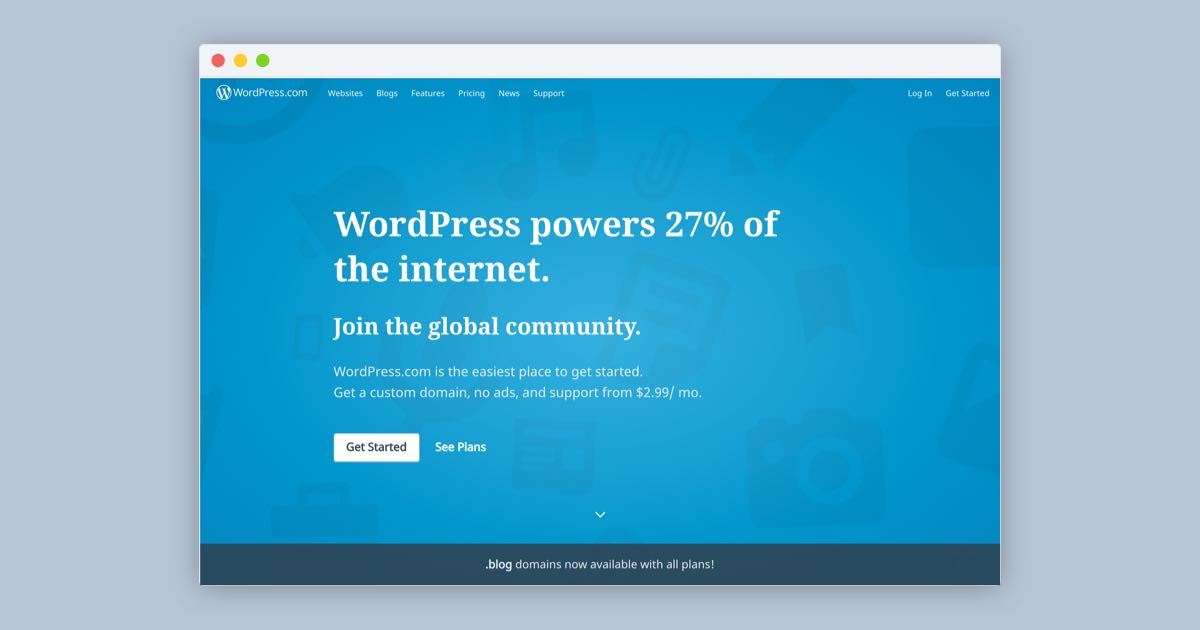
As a frequent WordPress developer, I’ve developed (ahem) a short-list of WordPress plugins that I find myself utilizing over and over again. These plugins are present on almost every site that I build and add a ton of polished, developer-friendly functionality that saves me dozens of hours of development time. Keep reading for my top 5 WordPress plugins.
Custom Field Suite
I’ll start the list with the plugin I rely on the most heavily when creating client websites. Custom Field Suite allows me to create groups of post custom fields that I can associate with specific post types, templates or individual pages. The fields range in type from simple one-line inputs to more complicated options like a WYSIWYG editor, and I can access the post fields programmatically using the CFS API.
One field type I especially enjoy is the loop field. With this handy field type, you can have a set of fields which can be repeated over and over within the page/post. I’ve used the loop field to build various repeating elements like a table of contents, social media icon sets, frequently asked questions and featured post containers.
Shortcodes Ultimate
Shortcodes are a really helpful tool for allowing clients to add a variety of custom content to their pages and posts while exerting a measure of control over the markup and appearance. While I’m not afraid to get my hands dirty and make my own shortcodes, Shortcodes Ultimate provides a nice variety of pre-made shortcodes for basic content like grid-based layouts, tabs, accordion containers, tables and more that can really help with client-friendly development. The elements come pre-styled, but you can easily override the included CSS with a custom stylesheet.
There are more than 50 shortcodes in the free plugin, but I often find the premium add-ons to be worth a purchase. You can purchase an add-on with more pre-made plugins, buy an add-on with additional skins/themes for the shortcodes, and even an add-on to build your own shortcodes (this comes in handy over building your own shortcodes thanks to the GUI for clients to insert shortcodes into the WYSIWYG editor). They’re available with developer licenses for use on multiple sites, something I’ve found to be a worthwhile investment.
The Events Calendar
When it comes to managing events on a website, there’s a lot to consider if you build your own solution. Creating events, querying them, sorting them, adding registration, integrating ticket purchases – it’s all a lot to take in. Unfortunately, most currently available plug-ins are out of date, bloated or lacking in features completely. My favorite remedy to the problem is the Events Calendar plugin.
The Events Calendar is full of handy features and abilities. It creates a custom post type, so it’s easy to access the events with custom WP queries. There’s an API to access event information, sort and filter events and work with various plugin extensions. Of course it also integrates with popular ecommerce solutions like Woocommerce for one-step ticket sales. If you need events on a client website, this is the way to go.
Yoast SEO
WordPress is a solid platform for SEO with no additional work required, but you can sometimes run into limitations with things like meta information and non-indexed pages. For totally granular control over each individual post and page, I like to use the Yoast SEO plugin.
The plugin adds a meta box to every post and page. From there you can edit the SEO meta information, set the robot/index settings and add social media information. There are special hooks available to access the SEO information and utilize it/manipulate it throughout your theme and site.
W3 Total Cache
Performance is important for sites that I build, and while I always try to minify files, etc. there are also some more advanced settings I like to take advantage of. Unfortunately, many clients don’t understand the importance of performance optimization so I have to squeeze in as much optimization into as little time as possible, and that’s where the W3 Total Cache plugin comes in handy.
The plugin takes advantage of clever browser cache settings to load static content faster. This improves loading times and makes for a significantly better customer experience. You can also integrate a CDN, minify content and make sure that all files and embedded code are fully compressed. I highly recommend this plugin for performance optimization that doesn’t get any simpler.
What’s your must-have WordPress plugin? Share it in the comments below.
